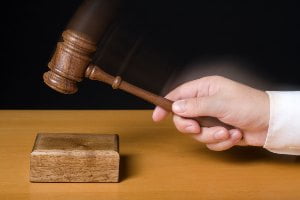 A decision by Judge Daniel Anders of the Philadelphia Court of Common Pleas has set us on a course for an appellate review of the sexual abuse exception to sovereign immunity.
A decision by Judge Daniel Anders of the Philadelphia Court of Common Pleas has set us on a course for an appellate review of the sexual abuse exception to sovereign immunity.
This would be the first time an appellate court has reviewed whether sovereign immunity can protect a state agency from liability for sexual abuse. This is the biggest unanswered question about the sexual abuse exception, according to Nathaniel Foote. He is a partner at Andreozzi and Foote who represents victims of abuse.
Judge Anders’ Decision
The case, L.F.V. v. South Philadelphia High School, concerns a teenager who is attempting to hold her high school liable for rape. She alleges the assault happened during gym class and the perpetrators were two other students.
The defendants argued that the Pennsylvania Political Subdivision Tort Claims act protected them from liability. However, the judge rejected this argument, which resulted in the defendant appealing.
Judge Anders noted that the plaintiff alleged the school was negligent because it failed to adequately supervise students during gym class, which resulted in the assault. The judge said this would fall within the language of the statute.
This is just one of several trial court rulings on this issue since 2019. These rulings all said that schools can be held liable for the actions of third parties.
Anders’ decision on July 10 is in line with his ruling in December of 2022, which overruled preliminary objections made by the defense.
What the Appellate Court’s Decision Could Mean
All other court rulings on this issue reject arguments from local governments that liability should be limited to cases where a government employee sexually abuses someone, according to attorney Andra Laidacker of Kline & Specter.
This matter has still not been settled because there are currently no appeals court rulings. This means the appellate court could make a definitive decision, says Laidacker.
If the appellate court rejects the idea that state agencies can be held liable for sexual abuse committed by third parties, many lawsuits about peer-on-peer abuse will not be able to proceed.
Criticisms of the Sexual Abuse Exception to Sovereign Immunity
The exception in question represents a significant change to the law. There is a lot of uncertainty at state agencies, including schools.
The exception took effect in 2019, and before that, cases like L.F.V. v. South Philadelphia High School were usually federal claims governed by the 14th Amendment or Title IX. These cases have years of decisions that more clearly establish when another party could be held liable, according to John Freund III, a partner at King Spry. He defends schools and other public entities.
Freund notes that the sexual abuse exception has vague language because it does not have a clear definition of negligence. There is also no guidance on evidence that can be used to establish negligence, and a lack of clarity about what the state agency is required to know about abuse.
However, Nadeem Bezar of Kline & Specter notes that these cases must still be litigated. Plaintiffs must still prove negligence occurred.

